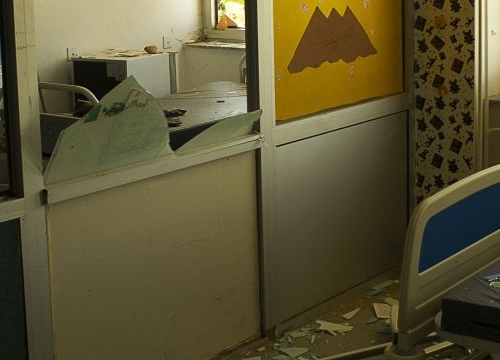Fighting Two Battles at the Same Time: Responding to Covid-19 in Conflict Zones
Geneva Academy Talks


ICRC
Online Event
Prisoners, internally displaced persons and refugees are particularly vulnerable to the rapid spread of COVID-19 because they can hardly comply with measures of confinement and/or social distancing and have limited access to healthcare facilities. In Syria, Yemen and many other places affected by armed conflict, healthcare facilities have also been destroyed or degraded, and there is significant shortage of medical equipment and medical professionals.
This IHL talk – exceptionally organized online – aims at shining light on the challenges faced by humanitarian organizations in organizing the response to COVID-19. The discussion will also touch upon states' obligation of due diligence to prevent the further spread of the virus.
Moderator
- Emilie Max, Researcher, Geneva Academy
Panelists
- Fabrizio Carboni, Regional Director for the Near and Middle East, International Committee of the Red Cross
- Antonio Coco, Lecturer, School of Law at the University of Essex, and Visiting Fellow, Oxford Institute for Ethics, Law and Armed Conflict
How to Join the Discussion
Make sure you have created a Zoom account, if you haven’t yet, please create an account here.
Once you have created the account, please click on this link. If you are not sent to the meeting room but requested to download the app, just download it again (and if it doesn’t open the meeting, just re-click on the link).
You will then be placed in the event's waiting room: the host will grant you access right before the start of the event at 12:30. Please note that the discussion can only accommodate 100 participants. Places will, therefore, be allocated on a ‘first come first served’ basis. For those who cannot join this online meeting, the video of the event will be posted afterwards on this page, as well as on our social media channels.
Asking Questions to Panelists
Please use the chatbox to ask your questions, the moderator will make a selection of questions at the end of the presentations. There will be no possibility to interact by webcam and microphone in order to avoid connexion issues.
About IHL Talks
The IHL Talks are a series of events, hosted by the Geneva Academy, on international humanitarian law and current humanitarian topics. Every two months, academic experts, practitioners, policymakers and journalists discuss burning humanitarian issues and their regulation under international law.
Video
Fighting Two Battles at the Same Time: Responding to Covid-19 in Conflict Zones
In this online IHL Talk, panelists discussed the challenges faced by humanitarian organizations in organizing the response to COVID-19, and states' obligation of due diligence to prevent the further spread of the virus.
Here are the links discussed during the event:








